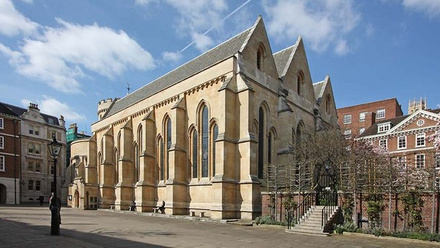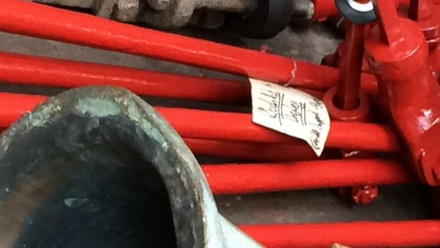Chancellor Rishi Sunak has today on 3 March announced the details of Budget 2021, pledging £408 million to support the arts sector.
The funding is intended to help museums, theatres and galleries to reopen when Coronavirus restrictions ease. Mr Sunak has described the culture sector, which employs 700,000 people, as a “significant driver” in recovery, playing a key role in the “roadmap” for reducing restrictions.
Details of the investment include:
- £300m will go into the Culture Recovery Fund
- £90m to help government-sponsored National Museums and cultural bodies in England stay afloat until they can reopen on 17 May (at the earliest)
- £18.8m for local cultural infrastructure projects in Carlisle, Hartlepool, Wakefield and Yeovil to boost the cultural life of the towns and cities
- £77m will go towards supporting culture groups in the devolved administrations in Scotland, Wales and Northern Ireland
The furlough scheme, which pays up to 80% of an employee’s salary and has been widely used by heritage institutions was set to end this spring. However, the Chancellor has announced a further extension to the scheme until September 2021.
For the first time, some of the newly self-employed (completed tax returns for 2019-2020) will become eligible for the Self-employed Income Support Scheme (SEISS). The scheme is being extended to cover some 600,000 workers who previously did not qualify as they had not been trading in 2018-2019.
The Chancellor also announced that the incentive payment for businesses to take on new apprentices will be doubled from £1,500 to £3,000 for any new apprentice. There will be a £7m fund to establish "portable apprenticeships", allowing those who need to work across multiple projects with different employers to benefit from the training that an apprenticeship provides. This is expected to be of particular benefit to the creative industries.
Mr Sunak announced a £520m package to support 130,000 SMEs. The package's management strand will enable SMEs to access up to 50 hours of MBA tuition, with one to one support from top business schools. Government will contribute 90% of the cost. The digital strand will see subsidised access to software, with 50% off approved productivity enhancing software.
Read the full budget documents.
Icon’s response
The Budget comes almost a year after the first Coronavirus lockdown started, which had serious consequences for conservation businesses that have continued to struggle with the financial strain of reduced client spending. In December 2020, almost half of business owners reported their revenue had decreased by more than 50% compared to normal expectations for the time of year, while a quarter of business owners estimated they only had up to 3 months of viable operational revenue.
We are delighted by the extension of the SEISS, which has featured consistently in Icon’s lobbying efforts and which will provide much needed support for conservators who have recently become self-employed. However, Icon remains concerned for the demographics that continue to fall between the cracks of support schemes, including sole directors of limited liability companies who don’t self-assess for tax and the conservators who operate in the gig economy or juggle a variety of part-time jobs and freelance work.
Icon remains concerned for the demographics that continue to fall between the cracks of support schemes
Icon warmly welcomes the Chancellor’s further investment in the Cultural Recovery Fund. We were delighted to be awarded a grant through the fund in 2020 to support our future resilience. However, many of our members have highlighted how the fund’s application processes are tailored to larger organisations. We therefore call for careful assessment and potential amendment of the fund to ensure that conservation businesses and SMEs are not inadvertently excluded.
The £90m to keep museums going until they can reopen is an important investment in the sector’s sustainability. The Coronavirus crisis has brought about the loss of income for many heritage organisations, which has led to a lack of demand for conservation services and opportunities. We have seen redundancy consultations in organisations ranging from the National Trust to most recently, the V&A. This in turn is affecting the fragile ecosystem of conservation businesses that rely on commissions from larger institutions. Long established private studios have already started to close due to a decline in commissions, and the threat of a shortage of conservation service providers is increasing.
Icon consequently urges leaders to ringfence funding to provide modest grants to sustain the many microbusinesses in our sector and the institutions who employ conservators. Investing in these businesses will maintain a continuity of professional expertise and protect skills. It will also provide a lifeline for cultural heritage practitioners and institutions, particularly the more vulnerable small and regional museums which are so vital to their communities.
In January, Icon launched the Collections Care Stimulus Fund with seed funding from the Radcliffe Trust. Our aim is to support heritage institutions or services in the UK to access grants to enable them to commission Icon Accredited members to undertake conservation activities. Support for our initiative would help continue generating a pipeline of work and continuity for conservators, protect our world-leading collections and support jobs, skills and businesses.
Find out more about our Coronavirus support and policy work.






